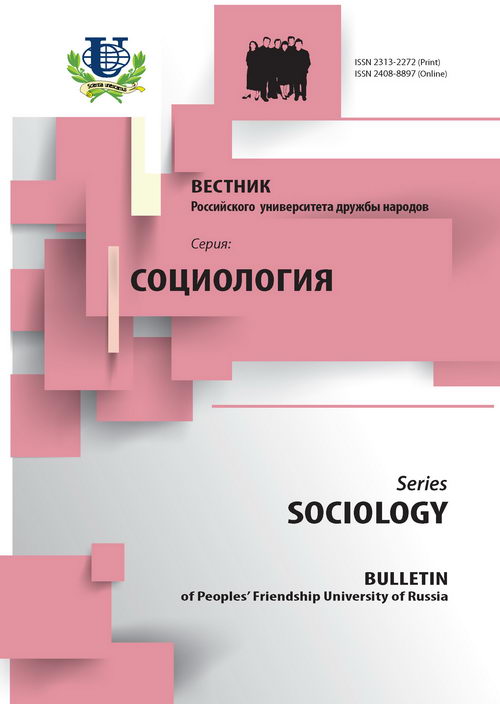Abstract
The contemporary social reality is marked by a considerable change of religious views and practices: the religion itself becomes a worldview option; the religious individuals are more autonomous from the religious institutions; individuals get an opportunity to construct and approve different beliefs; the religious identity transmission mechanisms weaken; the privatized religious ethics is legitimized outside the religious institutions. Danièle Hervieu-Léger’s theory presents one of the ways for the sociological conceptualization of the problems mentioned. The concept ‘bricolage’ is used by Hervieu-Léger as a technical explanation of the religious life deinstitutionalization. We define the bricolage as an individual practice that overcomes system-imposed modes and means of production, as an activity based on a random set of available elements. Hervieu-Léger notes that the main feature of the contemporary religiosity is the bricolage freedom, i.e. the freedom to construct an individual religious ethics. However, such a mode of social control does not necessarily lead to religious negligence or radical individualism. French sociologist believes that the generational transfers of religious identity are weakening and the in-out decisions in religious communities are becoming easier. According to Hervieu-Léger, such a movement itself becomes the main behavioral motif for contemporary religious agents for it is responsible not only for the individual religious pursuit, but for the collective construction and exchange of the religious experience.












